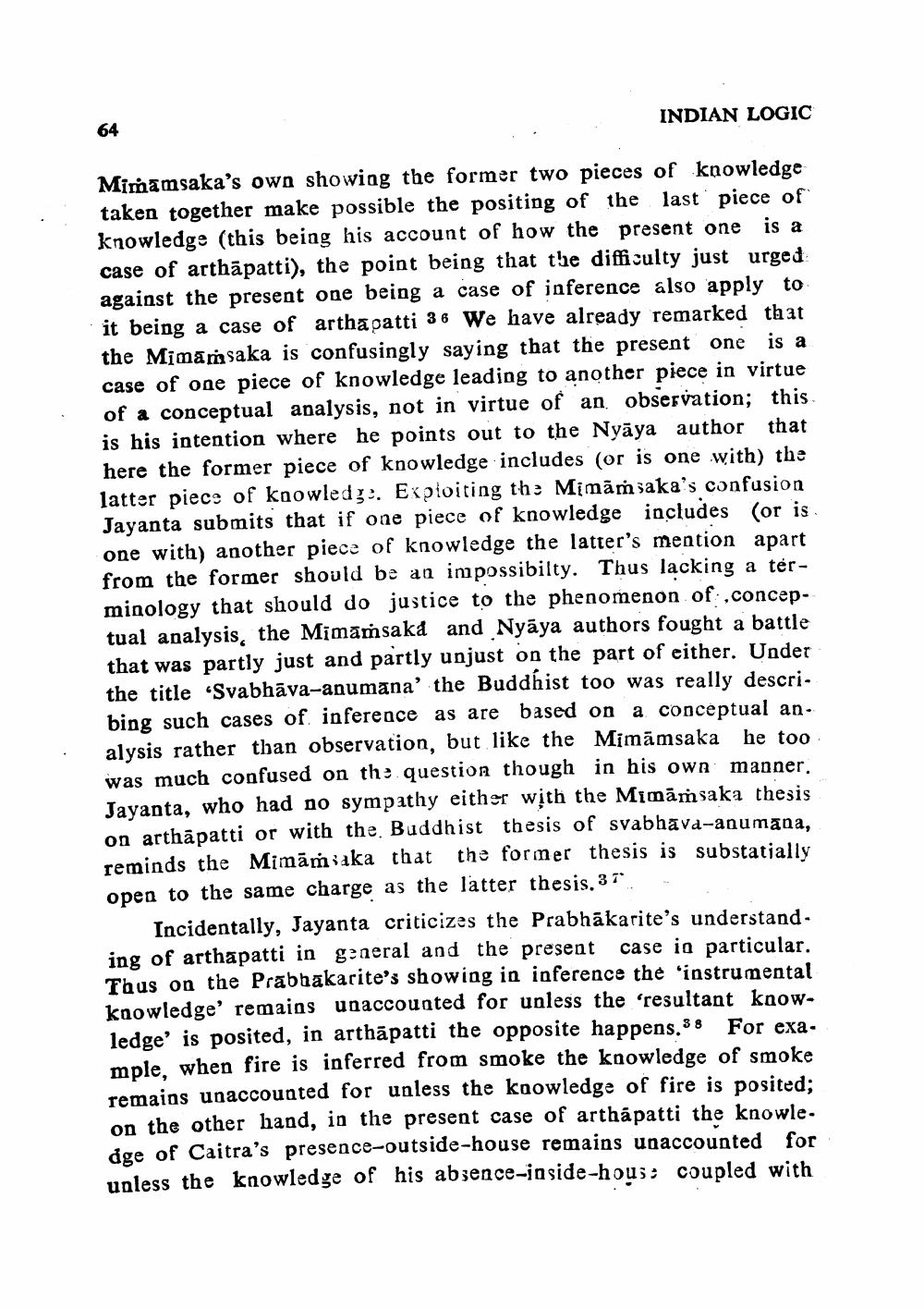________________
64
INDIAN LOGIC
Mimamsaka's own showing the former two pieces of knowledge taken together make possible the positing of the last piece of knowledge (this being his account of how the present one is a case of arthāpatti), the point being that the difficulty just urged against the present one being a case of inference also apply to it being a case of artha patti 36 We have already remarked that the Mimamsaka is confusingly saying that the present one is a case of one piece of knowledge leading to another piece in virtue of a conceptual analysis, not in virtue of an observation; this is his intention where he points out to the Nyāya author that here the former piece of knowledge includes (or is one with) the latter piece of knowledge. Exploiting the Mimāṁsaka's confusion Jayanta submits that if one piece of knowledge includes (or is one with) another piece of knowledge the latter's mention apart from the former should be an impossibilty. Thus lacking a términology that should do justice to the phenomenon of conceptual analysis, the Mimamsaka and Nyāya authors fought a battle that was partly just and partly unjust on the part of either. Under the title "Svabhāva-anumana' the Buddhist too was really describing such cases of inference as are based on a conceptual an. alysis rather than observation, but like the Mimāmsaka he too was much confused on the question though in his own manner. Jayanta, who had no sympathy either with the Mimamsaka thesis on arthāpatti or with the Buddhist thesis of svabhava-anumana, reminds the Mimāmiaka that the former thesis is substatially open to the same charge as the latter thesis. 37.
Incidentally, Jayanta criticizes the Prabhākarite's understanding of arthapatti in general and the present case in particular. Thus on the Prabhakarite's showing in inference the instrumental kaowledge' remains unaccounted for unless the 'resultant knowledge' is posited, in arthāpatti the opposite happens. 38 For exa. mple when fire is inferred from smoke the knowledge of smoke remains unaccounted for unless the knowledge of fire is posited: on the other hand, in the present case of arthāpatti the knowle. dge of Caitra's presence-outside-house remains unaccounted for unless the knowledge of his absence-inside-hous; coupled with




